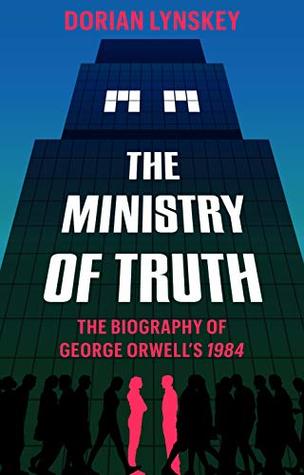More on this book
Community
Kindle Notes & Highlights
Read between
June 5 - July 10, 2019
“Fantasmagoric
“The end was contained in the beginning.”
A satire without laughter is still a satire,
“Mankind was living in a spiritual twilight, and none knew whether dawn or dusk would follow.”
The rush to adapt Nineteen Eighty-Four may have stemmed from an assumption that this was a book for the current moment, not one for the ages. In The New York Times Book Review, Mark Schorer suggested that its “kinetic” brilliance “may mean that its greatness is only immediate, its power for us alone, now, in this generation, this decade, this year, that it is doomed to be the pawn of time.”
reviewers admitted his limitations as a novelist, critic and political thinker but acclaimed him as a moral genius who emerged from a dirty time with clean hands.
Arendt was more knowledgeable about Germany and Orwell more interested in Russia, they came to many of the same conclusions: totalitarianism was the unprecedented intersection of ideology, bureaucracy, technology and terror. Arendt argued that totalitarianism aimed to actualise a fantasy, and the gap between myth and reality could only be closed by relentless deceit and unparalleled cruelty.
Bowie seemed both thrilled and alarmed in equal measure by totalitarianism and post-apocalyptic anarchy,
the novelist Martin Amis observed in 1978, “no one creates utopias anymore: even the utopias of the past now look like dystopias.”
Among the book’s innumerable problems was Burgess’s inability to predict 1978, let alone 1985. Martin Amis guessed that it had been conceived in 1976, when “everything seemed ready for the terminal lurch,” but the fever had already broken by the time it came out.
The best way to combat malign technology, implied the ad, was with benign technology. If Winston Smith only had a hammer.
“WAR IS PEACE,” began a press ad for retailer Einstein Moomjy. “FREEDOM IS SLAVERY. IGNORANCE IS STRENGTH. And our crisp new Sisal-like look in wool broadloom is $19.84 a sq.yd. At $19.84 it’s well worth watching, Big Brother.”
Nineteen Eighty-Four had mutated from a novel into a meme.
Orwell wasn’t even trying to foresee technological progress in functioning democracies. But you’d need to have read the book to know that.
Orwell had a glancing familiarity with superhero comic books. In 1945, he received a package of comics published by DC and Timely (the precursor to Marvel), which introduced him to the likes of Superman, Batman and the Human Torch. He was not a fan. “Quite obviously they tend to stimulate fantasies of power,” he wrote, “and in the last resort their subject matter boils down to magic and sadism. You can hardly look at a page without seeing somebody flying through the air . . . or somebody socking somebody else on the jaw, or an under-clad young woman fighting for her honour—and her ravisher is
...more
Atwood has since regularly been asked if the book was a prediction. Her answer could apply equally to Nineteen Eighty-Four: “Let’s say it’s an antiprediction: If this future can be described in detail, maybe it won’t happen.”
The arrival of 1984 therefore unleashed a flood of memories. The Lithuanian émigré Tomas Venclova, who read a clandestine copy of Nineteen Eighty-Four in the early 1960s and related the story to his friends as if it were a folk tale, said that it had changed his life: “He was the first person to explain to me that a normal person cannot live in that society.”
When a teacher in New York assigned the novel to forty-nine adult students in 1982, only one read it as anti-communist; the rest were reminded of the FBI, CIA, Watergate, television and computers. The book was now resonating at different frequencies.
It's about totalitarianism, not anti-communism. The communists only took offence to it during the post-war era because there was no other totalitarian regime to criticise.
more. The writer Rebecca Solnit calls Google “Big Hipster Brother.” She wrote about another of those companies, Apple, on the thirtieth anniversary of its most famous commercial: “Maybe Apple’s ‘1984’ ad is the beginning of Silicon Valley’s fantasy of itself as the solution, not the problem—a dissident rebel, not the rising new Establishment.” Citing government surveillance, hacking, revenge porn and iPhone addiction, Solnit argued that the “Orwell was wrong” triumphalism of the 1980s had been at best premature, if not dishonest.
Putin’s justification is, of course, different from Stalin’s—nationalism and cultural conservatism rather than Marxist ideology—and his execution less brutish, retaining the pretence of freedom of speech and political opposition. The aim of his brand of authoritarianism is not total control but effective control.
He has the cruelty and power hunger of a dictator but not the discipline, intellect or ideology.


